Swelling of the intestine: definition and causes
Intestinal bloating, often interpreted as "tension" accompanied by "meteorism", is a typical symptom of certain digestive disorders or diseases; therefore, it would be advisable to treat intestinal bloating as the secondary manifestation of a primary disorder.

In most cases, intestinal bloating is due to the accumulation of gas inside the digestive tract; these gases, if they do not come from the outside (aerophagia, which generally affects the stomach more than the intestine), can be the result of an excessive intake of dietary fiber and other related components, or of excessive bacterial metabolism. In fact, the diseases that are most frequently associated with intestinal swelling are: food intolerances, viral gastroenteritis, peritonitis, intestinal obstruction, gall bladder stones and irritable bowel syndrome.
Diet for intestinal bloating
The intestinal bloating diet is a diet that periodically or permanently eliminates the nutritional molecule or food responsible for excess gas.
Before going into detail, let us remember that the psycho-somatic component of the subject is often a determining factor in the manifestation of gastro-intestinal disorders; it intervenes both acutely and chronically.
The psycho-somatic induced by acute stress (therefore of an adrenergic nature - catecholamines) triggers a series of enteric reactions in a more or less intense way, including intestinal swelling accompanied by meteorism and diarrhea; moreover, chronic stress can affect the etiopathogenesis of irritable bowel syndrome. Not least self-suggestion: the belief that a food can give rise to abdominal swelling very often represents the main trigger of the symptom.
That said, let's review the diseases that most frequently give rise to intestinal swelling:
Intolerances: the most common are gluten (celiac disease) and lactose. Being intolerant to gluten very often includes significant intestinal reactions; as if that weren't enough, protracted celiac disease causes a structural change in the intestinal mucosa which inflames, swells and loses a large part of its absorption capacity due to the flattening of the villi. All this weakens the intestine and determines its functional alteration .
Lactose intolerance is less complex; it is caused by the lack of the enzyme lactase (usually present on the brush border of enterocytes) which allows intestinal bacteria to use lactose for their fermentation. The severity of symptoms depends on the severity of the symptoms. intestinal lactase concentration and the amount of lactose introduced.
The diet for intestinal swelling induced by intolerances provides for the identification of the responsible nutrient (or food) and its elimination from the diet.
In both cases the exclusion diet, more or less restrictive according to the individual tolerance level, constitutes the treatment of choice. These diets are based respectively on the exclusion of foods containing gluten and those rich in lactose.
Bacterial, viral gastroenteritis and peritonitis: these are diseases caused by the infection of pathogens and their toxins.They represent a wide range of different pathologies but which generally share the symptoms (more or less acute) of the enteric type: nausea, vomiting, intestinal tension, bloating, meteorism and diarrhea. The choice of diet can be complex and depends on numerous factors that must be evaluated by the relevant treating specialist.
Intestinal obstruction: it can be caused by several factors; the only therapy is the removal of the plug which limits fecal progress and induces bacterial fermentation. In a preventive key, it is advisable to maintain a good supply of fiber and a good level of hydration, which guarantee the right consistency to the stool.
Irritable bowel syndrome: it is a rather vague but widespread disorder. It does not cause an increase in the risk of cancer and is not of inflammatory origin. To treat it, it is advisable to organize the splitting of meals and balance the diet by regulating the intake of dietary fiber, probiotics and prebiotics; in this way it is possible to promote the right rhythm of the intestine.
Gallbladder stones: it is a disease that sometimes causes the alteration of the biliary flow in the intestine. Often it causes a difficulty in digestion of lipids probably responsible for the "gaseous increase; the diet for gallbladder stones involves the maintenance of a lipid portion around 25% of the total calories and mainly of the polyunsaturated type (it is advisable to use extra virgin olive oil" olive for its characteristic of emulsifier).
Supplements for intestinal bloating
In the event that the swelling persists and does not improve during nutritional therapy, it is possible to experiment with some natural remedies of the integrative type; the most used products are:
- Vegetable carbon: it is a dry extract of wood and tends to adsorb intestinal gas
- Animal charcoal: it is a dry extract of animal slaughter waste (such as bones); it has the same properties as charcoal but is more effective
- Compound officinal charcoal: mixed vegetable and animal
- Medicated coal - simply enriched with other useful molecules
- Probiotics and prebiotics: are products that directly or indirectly favor the bacterial balance of the intestinal flora
- Decoction of fennel seeds and / or aniseed: these two products decrease swelling by inhibiting bacterial fermentation
- Cumin - lemon balm - chamomile tea: they have some pro-digestive characteristics and could favor the remission of swelling
- Myrtle essential oil: boasts digestive and anti-fermentative properties
Supplements against bloating are products that can assist nutritional therapy but which DO NOT replace an appropriate diet drawn up on the specific etiological basis.
In case of chronic intestinal swelling it is advisable to consult a specialist and possibly supplement the nutritional therapy with one or more of the products listed above.

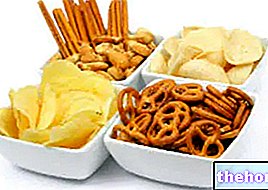
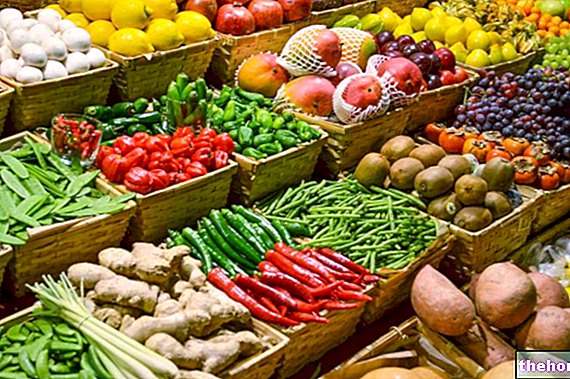
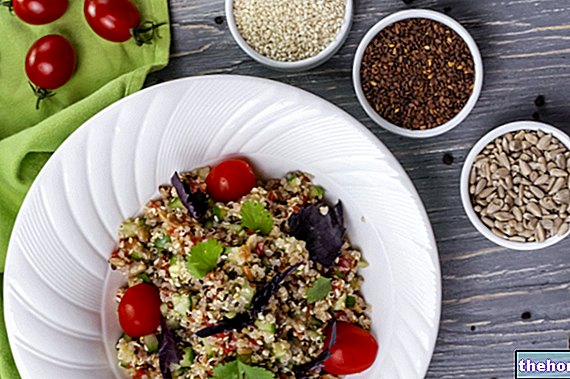

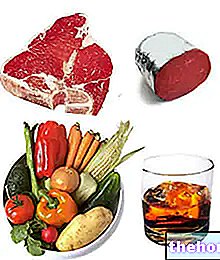
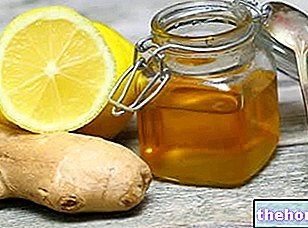









.jpg)











